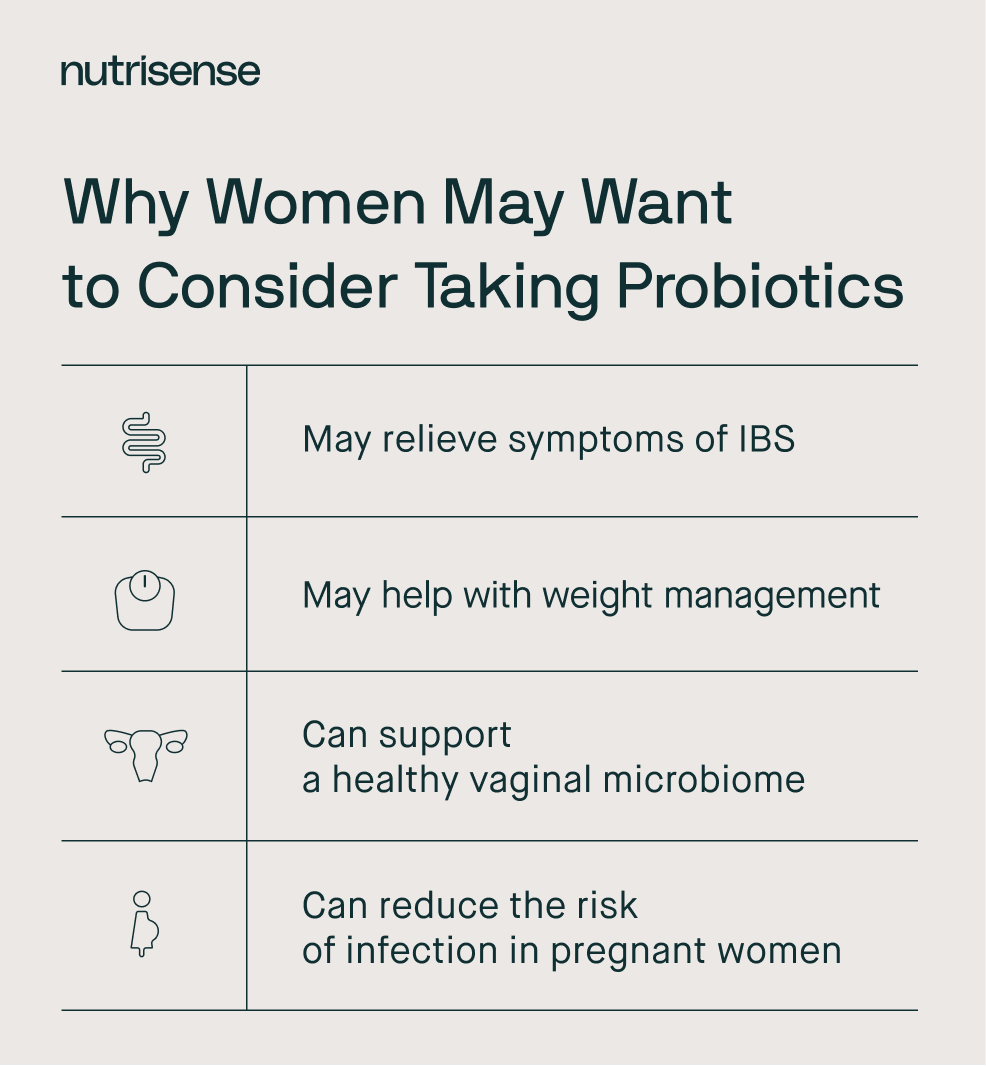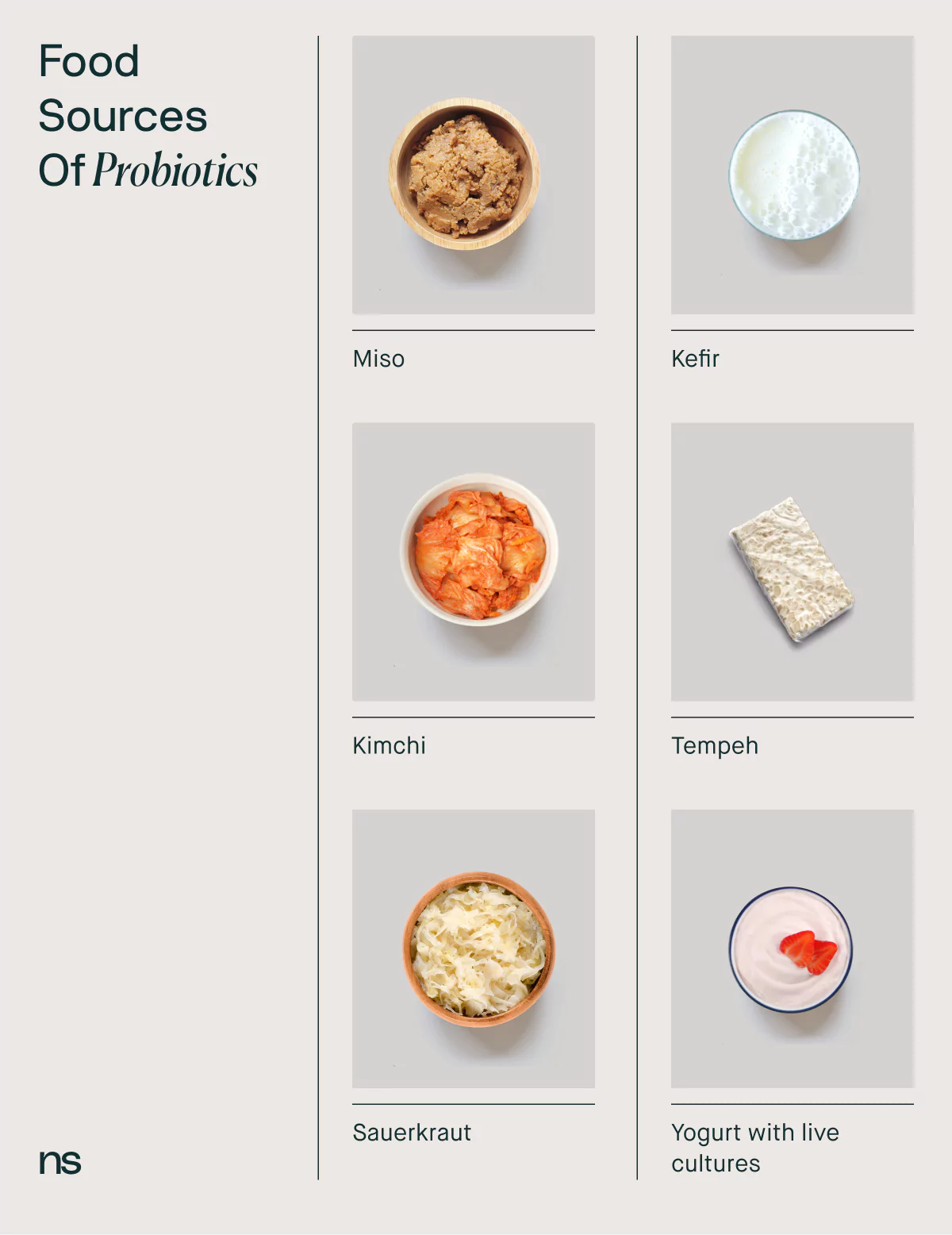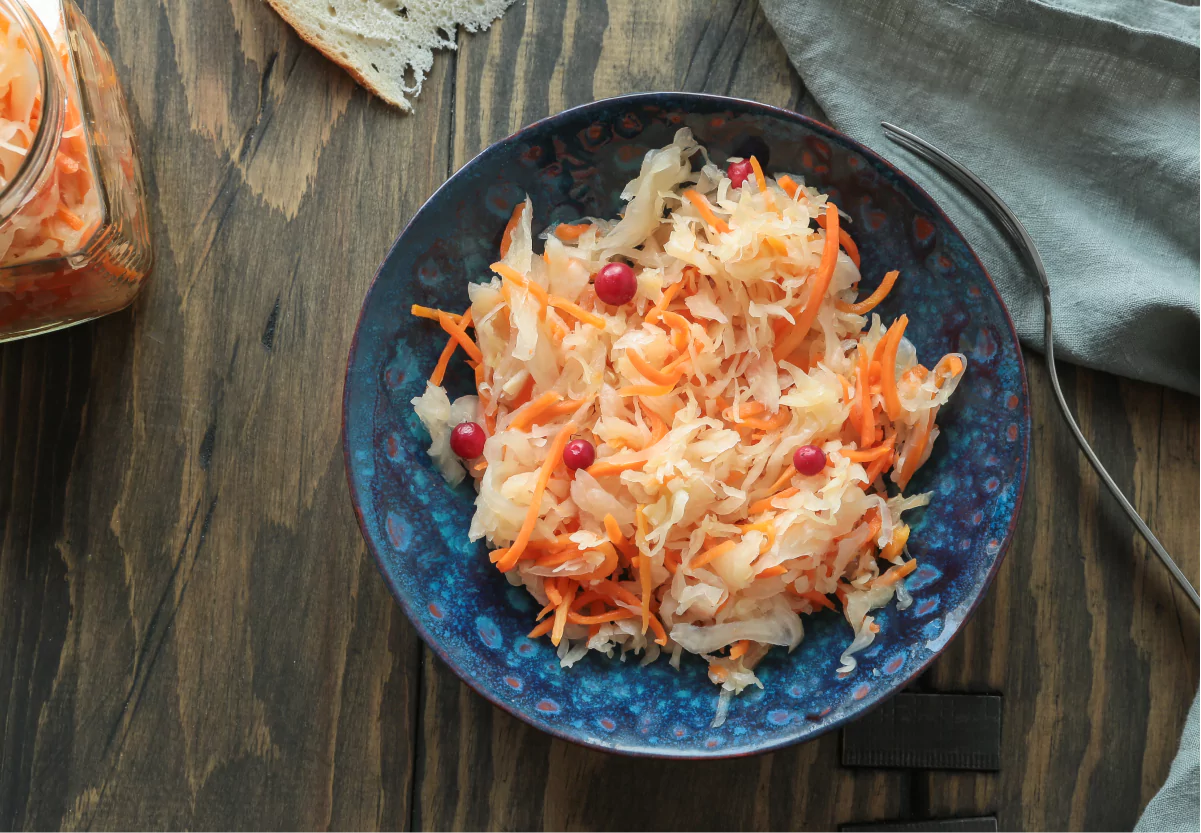Probiotics may have a number of health benefits for women, especially when it comes to vaginal and gut health. But what exactly is a probiotic?
Probiotics are live microorganisms that are found in fermented foods and dietary supplements. These microorganisms can benefit the body in many ways, and are most notably studied for their effect on digestion and the gut microbiome.
So, with all these potential benefits for the gut, what role might probiotics play in women’s health? Read on to learn all about probiotics for women.
Why Probiotics May be Important For Women

Whether you get them from supplements, foods, or even beverages, probiotics can offer some specific benefits when it comes to women’s health. For example, studies show that probiotics can influence the health of the vaginal microbiome.
Factors that can affect this microbiome include:
- Age
- Sexual behavior
- Ethnicity
- Illnesses or vaginal infections like bacterial vaginosis, UTIs, or yeast infections
A healthy vaginal microbiome contains Lactobacillus, which possess antibacterial properties. Some research suggests that this probiotic may help maintain the pH of the vagina.
Research has also shown that women are more likely than men to suffer from irritable bowel syndrome, or IBS. At the same time, studies have shown that probiotics may improve digestive health and symptoms of IBS like gas and abdominal pain.
Probiotics may also have a positive impact on pregnancy. This may be due to the fact that probiotics may influence the length of pregnancy, perhaps even reducing the potential for preterm birth.
However, more research is needed to confirm some of the effects of probiotics, and you should always talk to your doctor before taking probiotics while pregnant.
Potential Benefits of Probiotics for Women
As we’ve discussed, there are a few potential benefits that probiotics may offer for women interested in improving their overall wellness.

- Probiotics may improve the health of the vaginal microbiome
- Probiotics can relieve the symptoms of IBS and may support a healthy gut
- May reduce the risk of death and infection in pregnant women
- Some probiotics may help with weight management
Signs that You May Benefit From Probiotics
Since there are some potential health risks for some people in taking probiotics, it’s always a good idea to speak with your doctor first before beginning any supplement. It’s also important to keep in mind that probiotics may not be effective for everyone.
Some of the signs we list below may in fact be connected to other health issues and you will always want to speak with your doctor before deciding that probiotics should be used to manage or address any concern.
In addition to some of the benefits we’ve mentioned above, probiotics can affect many different aspects of your overall health. According to emerging research, there may be ways probiotics could be beneficial for a number of concerns.
Some of these might include:
1. You Get Sick Frequently

Probiotics have been shown to enhance immune system function and may reduce your chance of getting sick. However, it’s important to consult with your doctor before trying probiotics to boost your immune function, especially if you have a weakened immune system.
2. You Have Digestive Issues
Probiotics are widely known for their potential effect on digestive health. They have been shown to:
- Prevent diarrhea brought on by taking antibiotics
- Assist in maintaining the balance of your gut microbiome
- Potentially reduce symptoms of IBS like bloating, abdominal pain, and constipation.
Again, always talk to your doctor before taking a probiotic for digestive issues.
3. You Have Skin Issues Such as Eczema or Psoriasis

Research has shown that probiotics may benefit skin health. Lactobacilli and Bifidobacterium have both been shown to reduce skin inflammation and help manage skin conditions like atopic dermatitis, which is also known as eczema.
4. You Have a Mood Imbalance
Probiotics may even benefit your mental health! Some research has shown that Lactobacillus and Bifidobacterium may both reduce anxiety and depression. The impact of probiotics on your gut microbiome may also be beneficial for your mental health, as some research has suggested a link between the gut and mental health.
5. You Experience Sleep Disturbances
An altered composition and decrease in diversity of gut microbiota has been observed in many of those who may struggle with sleep problems associated with chronic fatigue. However, this is a very complex condition and more studies are needed.
Other studies have shown that probiotics may improve the quality of sleep in people who experience insomnia.
What to Know Before Taking Probiotics

There are many different strains of probiotics, and it’s important to be aware of what type of probiotic blend you will be taking, as not all probiotics on the market are high-quality or approved by the FDA.
While probiotics are generally considered safe, some populations may experience side effects. So, before taking a daily probiotic, you should keep these considerations in mind:
- Immunocompromised individuals may actually experience serious negative side effects from probiotic supplements, so be sure to consult with a licensed healthcare professional before taking probiotics.
- Consult a healthcare professional for guidance in choosing the right strains for you and your health goals, whether you opt for a daily supplement, probiotic gummies, or a drink such as kombucha.
- Remember that everybody is different, and you may find that you respond differently to various strengths, formulas, or strains of probiotics
6 Foods that Are a Strong Source of Probiotics

If you prefer to source your probiotics from food, not to worry! Probiotics are naturally found in a wide variety of fermented foods, though it’s important to note that not all fermented foods contain live probiotics.
Since the quality and quantity of probiotics in fermented foods can vary widely, it’s always best to check the label of any food for probiotic strains and the CFU (colony-forming unit). Here are a few fermented foods that are strong sources of probiotics.
1) Yogurt (with Live Cultures)
Yogurt is made by fermenting milk with probiotic bacteria, including Lactobacillus and Streptococcus thermophilus. Probiotics from yogurt have been shown to improve gastrointestinal well-being and gut health.
However, not all yogurt is made with probiotics so make sure to choose yogurt that contains active live cultures. If someone also experiences a dairy sensitivity or allergy, this would not be an ideal choice.
2) Miso
Miso is a fermented condiment that is a staple in Japan. It is made from fermented soybeans and contains Tetragenococcus halophilus, a probiotic that has been shown to positively affect digestion and the immune system.
3) Kimchi
Kimchi is a popular condiment in Korea usually made from fermented cabbage that is highly seasoned. Kimchi is full of probiotic lactic acid bacteria, including one called Lactobacillus kimchii.
4) Sauerkraut

Sauerkraut is made from fermented cabbage and is used widely in the cuisine of central Europe. Research shows that commercial sauerkraut may contain up to 28 distinct strains of lactic acid bacteria.
5) Kefir
Kefir is a fermented milk product made by the interaction of bacteria and yeast. Kefir is a natural probiotic that contains Lactobacillus.
Kefir has also been shown to improve lactose digestion for those who are lactose-intolerant. It may also have antimicrobial, anticarcinogenic, and immunomodulatory activity. And again, if someone also experiences a dairy sensitivity or allergy, this would not be an ideal choice.
6) Natto
Natto is a fermented soybean product that is popular in Japan. It is often used as a meat substitute, and it’s rich in probiotics like Bacilius subtilis, though some of these benefits may be lost during the cooking process.
As it comes from soybeans, natto is rich in protein and many vitamins and minerals, and has been linked to improve heart and gut health.


